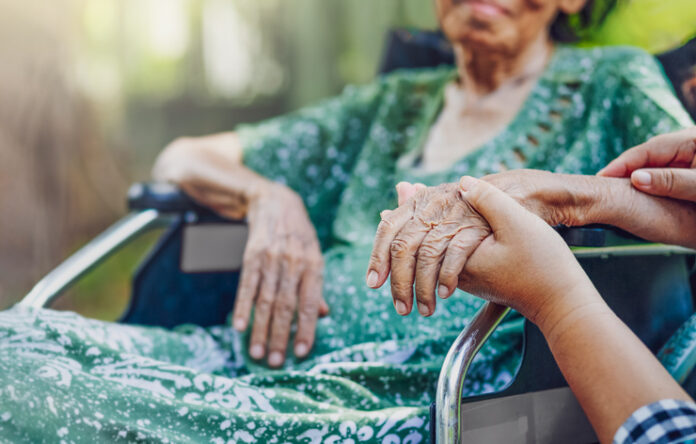Nursing home owners profiteered during the pandemic, reports Kaiser Health News (KHN).
Owners of private nursing homes in New York state profited from COVID-19 subsidies, writes Jordan Rau, in an article titled “Nursing Home Owners Drained Cash During Pandemic While Residents Deteriorated,” published by KHN on February 1.
“Nearly half the state’s 600-plus nursing homes hired companies run or controlled by their owners, frequently paying them well above the cost of services, a KHN analysis found, while the federal government was giving the facilities hundreds of millions in fiscal relief,” said Rau.
During the first year of the pandemic, these affiliated corporations collectively amassed profits of $269 million at average margins of 27 percent, according to Rau. The nursing homes that hired them suffered severe underfunding that led to or exacerbated staff shortages, patient injuries, and mounting COVID deaths.
Rau focuses on New York, which has the most stringent financial reporting requirements in the country but cites similar issues in other states.
‘Tied Nursing Homes in Knots’
New York State Attorney General Letitia James has filed lawsuits against some nursing home chains.
The Centers for Medicare and Medicaid Services (CMS) is weighing new nursing home standards, including establishing new minimum staffing and training requirements.
More regulation will make resident care worse, not betters says Stephen A. Moses, president of the Center for Long-Term Care Reform.
“Government has already tied nursing homes in knots of regulation impossible to comply with given notoriously low reimbursement rates,” said Moses. “Bed shortages are showing up everywhere because of heavy dependency on Medicaid, inadequate revenue, and ever heavier regulation.”
Moses is the author of a recent Paragon Health Institute report detailing how the current system discourages people from saving for long-term care, pushes more families into the Medicaid system, and compromises care overall.
Dementia Increased Under Lockdowns
Dementia among nursing home residents increased during COVID-19 lockdowns and non-profit institutions fared worse than for-profits, according to a report titled “Understanding Nonprofit and Government Ownership: Evidence from Nursing Homes in the Covid-19 Pandemic,” published by the Mercatus Center at George Mason University.
There are two broad groups of nursing home patients, Vitor Melo, a post-doctoral fellow with the Open Health Project at Mercatus and author of the paper, told Health Care News.
“The first group is patients with some form of dementia, which represents about half of residents,” said Melo. “Much research has shown that a lack of socialization and in-person contact with others is associated with a fast deterioration of these patients. Isolation during the pandemic increased deaths from non-COVID reasons primarily among patients with dementia, by worsening their mental health and consequently their physical health.”
The isolation also affected the rest of the nursing home population, says Melo.
“The second group consists of residents who do not have dementia or other related conditions,” said Melo. “Many residents reported symptoms of depression associated with isolation. … I also find that isolation is associated with much more non-COVID deaths among residents in this group. But note that the effect of isolation was much higher among residents with dementia than those without dementia.”
‘Lives Would Have Been Saved’
Melo found non-profit facilities had more total deaths than for-profit ones during the pandemic.
For-profit facilities were more incentivized to respond to consumers’ interests, according to Melo. They implemented less restrictive lockdown measures, which risked increasing the number of cases and deaths from COVID-19, but reduced total mortality.
Avoiding isolation was the key to eliminating needless suffering and deaths, says Melo.
“The first step is to recognize the enormous impact isolation has on nursing home residents,” said Melo. “There may be future situations when isolation might decrease the spread of a virus and it may be tempting to implement isolation measures to protect residents.”
However, these measures could do much more harm than good, says Melo.
“My analysis shows that had isolation measures been less strict in nursing homes during the pandemic, many lives would have been saved,” said Melo.
Kevin Stone (kevin.s.stone@gmail.com) writes from Arlington, Texas.




















